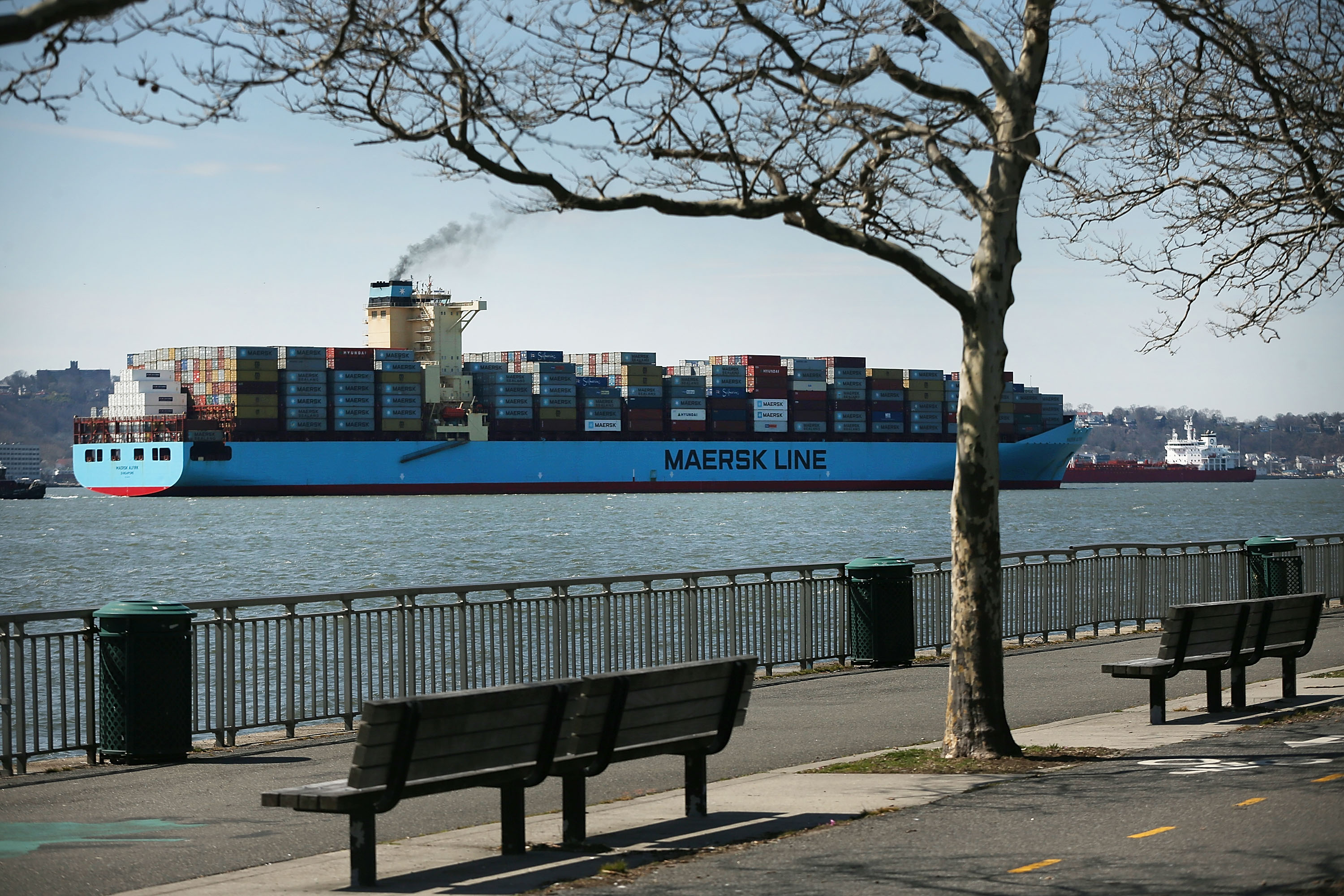Harsh Trump trade policies weigh on US CEO sentiment
Photo: () | ©AFP
New York (AFP) – Worries among US businesses over President Donald Trump’s aggressive trade policies are beginning to affect CEOs’ outlooks on hiring and capital spending, according to a survey released Tuesday.
The survey by the Business Roundtable, which represents giant US corporations, still showed broad confidence in the US economy. But the index fell for the first time in Trump’s presidency in the second quarter, with an overwhelming number of respondents expressing worries on trade.
“The administration’s trade policy is a huge concern to almost every member of our organization,” Business Roundtable president Josh Bolten said in a conference call with reporters.
“The Business Roundtable has a good working relationship with this White House. We feel like we get a good hearing, but the president so far has rejected much of our advice about trade policy as have some of advisors and we’re going to stay at it.”
JPMorgan Chase chief executive Jamie Dimon, who serves as chairman of the group, cautioned that the uncertainty is not good for business.
“This trade stuff is not only directly affecting decisions, but it also creates uncertainty and uncertainty of course is not a friend of the economy,” Dimon said.
A White House official said Tuesday the administration is contemplating separate bilateral trade deals with Mexico and Canada as an alternative to the North American Free Trade Agreement, since talks to revamp the pact have lately stalled.
But NAFTA is only one of the high-profile trade spats dominating headlines. Trump last week angered allies by imposing tariffs on imported steel and aluminum from the European Union, Canada and Mexico. Trump has also embarked on a risky tit-for-tat series of threats against China.
That has prompted threats of retaliation from key US allies, and Mexico on Tuesday published a list of American products that will be subject to harsh import duties, including a long list of steel products, cheeses, fruit, pork and bourbon.
Frustration among US allies broke out into the open at a G7 meeting last weekend, with finance ministers united in condemning Washington’s aggressive protectionism ahead of this weekend’s summit of G7 leaders in Canada.
The Business Roundtable report, based on a survey of 132 CEOs over a two-week period in May, showed the CEO Economic Outlook index fell to 111.1 in the second quarter from 118.6 in the first quarter, the first drop in nearly two years, even though it remains well above the historical average of 81.2.
All three components of the outlook fell: sales, capital spending and employment.
It showed 61 percent of companies expect an increase in capital sales over the next six months, down from the 68 percent in the first-quarter survey.
– Downside risk to economy –
A whopping 89 percent of CEOs described a decline in US economic growth as a “moderate” (58 percent) or “serious risk” (31 percent) from the Trump’s administration’s trade policies.
Trump administration trade policies also were cited as a risk in a survey released Tuesday by the National Association for Business Economics, which showed a “stark” shift in overall sentiment compared with the prior survey in March.
In the March survey, over 75 percent said the 2018 business outlook was “largely weighted to the upside.” But in the May survey, 57 percent said the balance of risk to growth was to the downside.
NABE attributed the change to the shift in policy from tax cuts and fiscal policy to tariffs and potential trade wars.
During the conference call, Bolten said he understood Trump ran his presidential campaign based on correcting agreements he considered unfair to US workers and interests.
But Bolten said some of Trump’s measures went beyond the campaign and put US interests at risks. He pointed in particular to the use of national defense to justify the harsh steel and aluminum tariffs.
“It’s a very damaging way to go about pursuing trade policy because it’s an invitation to our trade partners to use their national security exemptions to block any of our exports to them and the president never campaigned on anything like that,” he said.
“It may have been a convenient tool they found, but it’s a mistake.”
Dimon, meanwhile, dismissed as “absurd” comments from US Trade Representative Robert Lighthizer calling the US trade deficit a benefit to US corporations that strangles workers.
“I think you want to be careful about blanket statements that cover everything because they are generally inaccurate and I find that one in particular a little rude.”
Disclaimer: This story has not been edited by Siliconeer and is published from a syndicated feed. Siliconeer does not assume any liability for the above story. Validity of the above story is for 7 Days from original date of publishing. Content copyright AFP.


